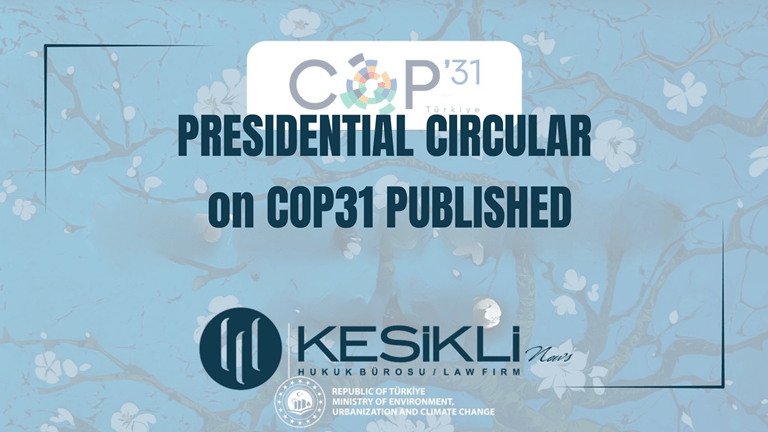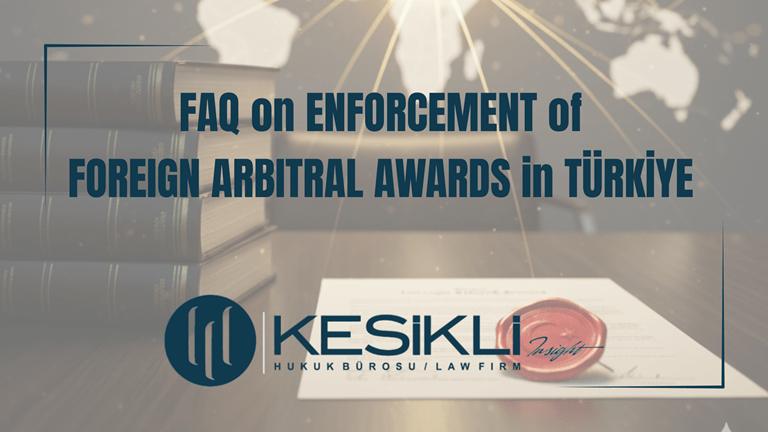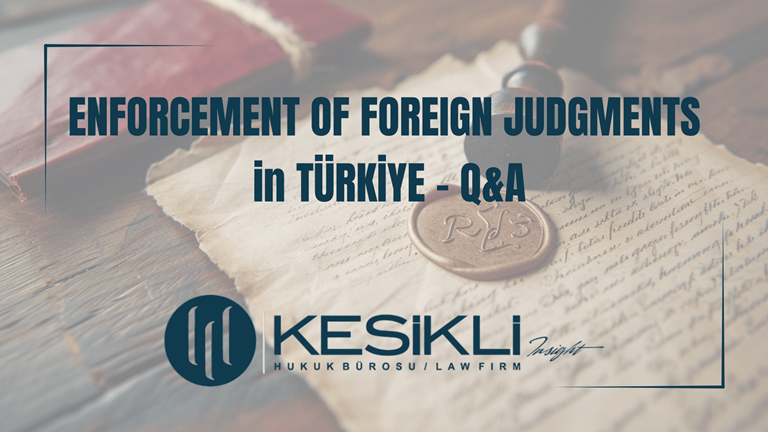As it is known, foreign court judgments with executive effect is required to be enforced in accordance with the Article 50 and the following articles of the Law No. 5718 on International Private and Civil Procedural Law (“the IPCPL” - RG: 12.12.2007) to have the same effect under Turkish Law.
The reciprocity condition, one of the enforcement conditions specified in Article 50 and Article 54 of the IPCPL, plays a vital role in practice, which must be examined ex officio by the court in the enforcement proceedings. Pursuant to Article 54/a of the IPCPL, enforcement of a foreign court judgment is dependent on “an agreement on reciprocity between the Republic of Turkey and the state where the judgment was issued or the existence of de jure or a de facto practice that enables enforcement of the judgments given by Turkish courts in that state”.
In evaluation of the reciprocity, the first aspect to be considered should be as to whether there is treaty or international agreement under which enforcement of foreign judgments are accepted. If Turkey and the state where the judgment in question were granted, are parties to such a treaty or international agreement, this would prove existence of political reciprocity in between those two countries. If such a treaty or agreement does not exist, enforcement would still be possible in case of existence of de jure or de facto reciprocity.
In order for the de jure reciprocity to exist, the enforcement conditions in the law of the country where the judgment was granted and the enforcement conditions regulated in the Article 50 of the IPCPL and the following, should be at least equivalent. There will be no de jure reciprocity between Turkey and the states that have a legislation that includes provisions that provide for stricter conditions for enforcement of Turkish Judgments compared to the enforcement conditions for foreign judgments in the IPCPL. In evaluating whether there is de jure reciprocity or not, it would be more appropriate to make a general evaluation rather than requiring existence of same enforcement conditions in the laws of both countries.
We would like to mention on prohibition of examination of merits (revision) at this stage. Contrary to Turkish law, if foreign law adopts the revision system, it is very difficult for de jure reciprocity to exist. Because under Turkish enforcement law, it is forbidden to examine the merits of the case, other than for the purposes of evaluation of whether the conditions in Articles 50 and 54 of the IPCPL are fulfilled. Reopening the merits of the foreign judgments and review of accuracy of the same are not allowed under Turkish Law .
In summary, the important issue as to whether there is de jure reciprocity, is the existence of provisions that allow the enforcement of foreign court judgments in the laws of the state where the enforcement of the judgment is sought. In this vein, equivalence between enforcement conditions is essential. Differences in between the legislation of respective to states that do not significantly complicate enforcement of foreign court judgments do not constitute an impediment regarding de jure reciprocity.
Even if political or de jure reciprocity is existing, if the judgments of Turkish courts are not enforced de facto by the state where the judgment is granted, the reciprocity is not considered as existing. This would be called as negative de facto practice, and Turkish Court of Cassation held in its judgments that there is no reciprocity in such case. On the other hand, to be able to hold that negative de facto practice exists, it should be proved that the courts of the state where the enforcement of the judgment was sought, must have rejected the enforcement of the Turkish court judgment; despite meeting all the conditions of enforcement under the laws of such jurisdiction. If the rejection of the enforcement of the Turkish court judgment is based on valid reasons according to the law of the foreign state, it cannot be concluded that there is no reciprocity on the grounds of negative actual practice. The de facto practice is always important in determining reciprocity. However, it should be kept in mind that the positive de facto practice is always easier to prove.
In order for positive de facto reciprocity, a similar Turkish court judgment must be enforceable in the state where the foreign judgment is issued. Despite an agreement or legal arrangement that establishes reciprocity, the fact that any judgment of Turkish courts has not been enforced yet in practice, because of lack of request regarding this issue in the relevant state, may not be considered as a mere reason for denial of an enforcement lawsuit. At this point, the issue of which date should be taken as a basis has particular importance in order to decide whether there is de facto reciprocity. This issue is controversial in the Turkish literature. According to one opinion, the date of the enforcement judgment should be taken as a basis, while another opinion suggests that the filing date the lawsuit should be.
Another important issue in considering de facto reciprocity relates to the scope of de facto reciprocity. In other words, the question is as to whether there should be a different evaluation based on the subject matter of the lawsuit resulting the judgment? For example, assuming that de facto reciprocity exists in family law judgments, will this reciprocity also be applicable for foreign judgments relating to a commercial matter? There is no consensus in the literature on this issue. An opinion suggests that de facto reciprocity should exist for judgments on the same subject, while another opinion defends that enforcement any judgment granted by the court in such foreign jurisdiction (regardless of what its subject matter is) should be sufficient to establish reciprocity, as the philosophy underlying the condition of reciprocity requires.
For the purposes of evaluation of reciprocity (de jure and de facto), it does not matter whether Turkey recognizes such specific state whose courts granted the judgment; as opposed to evaluation of political reciprocity, where the parties to a specific treaty must recognize each other.
If there is no political, de jure or de facto reciprocity between Turkey and the relevant foreign state, the request for enforcement will be rejected.
The question as to whether there is reciprocity in between to states is one of the hardest issues in practice, because there is not a "central information source" to determine reciprocity.
On the other hand, the judge has to examine ex officio and clarify whether the reciprocity exists. It is a very common practice for the Courts to consult with the official authorities about reciprocity matters. However, this method does not always work efficiently in practice and may even lead to anaccurate results. In addition to that, existence of reciprocity can change over the time and the Court of Cassation rules that at each case a new research is required to be conducted.
To sum up, it is necessary to examine in detail whether the reciprocity condition is met for enforcement of foreign court judgments in Turkey. We believe that this examination should not be limited to the legislation and practices in Turkey in order to reach an accurate conclusion.
For more insight on Enforcement of Foreign Judgments in Turkey you may refer to our other articles below:
Enforcement of Foreign Judgements in Turkey - Series No.1
Enforcement of Foreign Judgements In Turkey – Series No. 2
@Kesikli Law Firm
Let's Get Connected!



